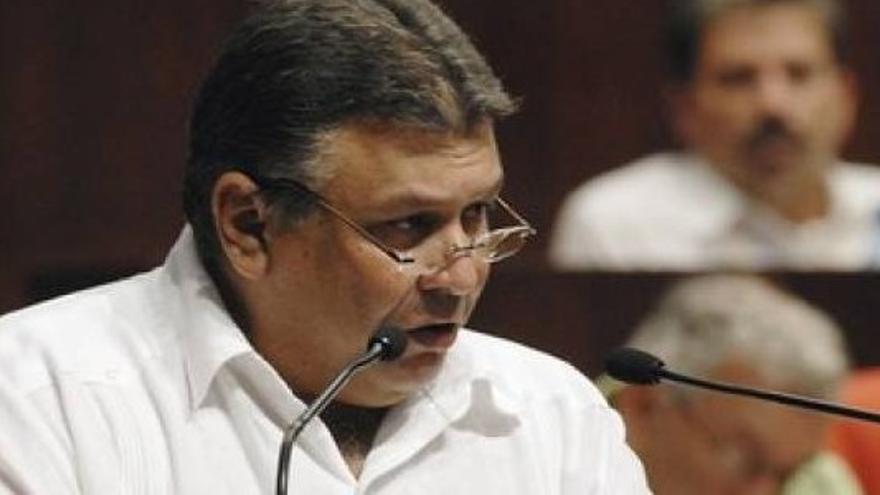
![]() EFE via 14ymedio, Havana, 24 February 2018 — Cuban Vice President Marino Murillo acknowledged on Friday that the implementation of the economic reforms undertaken under President Raúl Castro’s presidency of the island has generated “more errors than virtues” and said that there is a “distance” between the initial objectives and the reforms in practice.
EFE via 14ymedio, Havana, 24 February 2018 — Cuban Vice President Marino Murillo acknowledged on Friday that the implementation of the economic reforms undertaken under President Raúl Castro’s presidency of the island has generated “more errors than virtues” and said that there is a “distance” between the initial objectives and the reforms in practice.
Murillo, known as the “Tsar of reform,” pointed out that “insufficient training” for the island’s human resources limits the implementation of national policies associated with the updating of socialism. His comments were made during a seminar with executives from the health sector, according to the official media.
Since the approval of the first reforms in 2010, the Cuban government has applied a total of 100 Guidelines — as the new economic directives are officially called — which have always been accompanied by education and training for the intermediate levels in charge of carrying them out, said Murillo.
“But the quality has not been good,” admitted Murillo, Minister of the Economy from 2014 to 2016 and currently head of the Permanent Commission for the Implementation of the New Economic Policy, charged among other things with defining the conceptualization of the new Cuban socialist model.
Murillo noted that in the area of human resource training there were “flaws” in the content and in the selection of participants and he stressed the importance of holding new seminars to raise awareness of the new legal rules governing the business system.
The two fundamental pillars of the reforms to “update” socialism are the new arrangements for foreign investment and the opening of the private sector, by expanding the professions in which individuals can work autonomously, “cuentapropismo” (literally ’on-your-own-account-ism’) as self-employment is officially referred to. Currently this form of employment now involves more than half a million entrepreneurs.
In August, the government halted the granting of new self-employment licenses for the most widespread professions, such as restaurants and renting lodging to tourists, reportedly in order to improve and correct irregularities.
Since then the sector has been waiting for a new regulations, which it is feared will be more restrictive.
As a positive aspect in the progress of the reforms, Murillo stressed that the relationship between the directors of state-owned companies and government boards has been tightened when allocating the budget to “maximize” production.
One of the pending reforms on the island is the monetary unification — that is ending the dual currency system consisting of Cuban pesos and Cuban convertible pesos — which, according to Murillo, should create a “more favorable” environment for state-owned companies, since the two currencies currently ciculating on the island are regulated under different exchange rates according to the sector.
In Cuba, the Cuban peso (CUP) circulates as the national currency and the convertible peso (CUC) is considered a hard currency (roughly equivalent to the dollar and worth 24 CUP), a monetary duality that has persisted since the 1990s and that has generated serious distortions in corporate accounting and macroeconomics, as well as led to two standards of living among the population.
Most Cubans collect their salaries and pay for basic services with the national currency, the CUP; the average monthly salary is about 672 Cuban pesos (equivalent to about 28 dollars).
The timetable — without dates — to complete the unification has been announced since 2013, but has not yet been implemented. However, according to several analysts it is likely to be realized this year, since the lack of a single currency is also one of the main obstacles to foreign investment.
In his closing speech at the last plenary session of Parliament in December 2017, Raúl Castro stressed that the end of the dual currency system “cannot be delayed any longer” and it is the “process that will be most determinate” in advancing the reforms promoted during his mandate.
______________________________
The 14ymedio team is committed to serious journalism that reflects the reality of deep Cuba. Thank you for joining us on this long road. We invite you to continue supporting us, but this time by becoming a member of 14ymedio. Together we can continue to transform journalism in Cuba.
